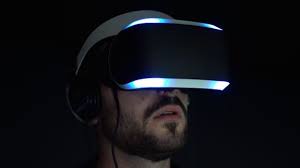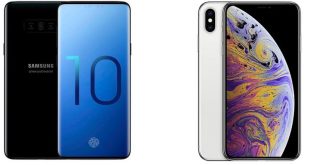Samsung is working on its own VR headset that would to be available to the masses sooner that the Oculus Rift. Even if Samsung plans to be the leader of the virtual reality headsets’ market, surprisingly the company is already collaborating with Oculus in developing their device. Samsung will get its hands on Oculus’ mobile virtual software development kit and use it in powering the headset’s software system experience. A report suggests that Samsung already has access to an early version of the SDK and it’s developing a user interface for the headsets. In exchange, Oculus will have access to to Samsung’s high-pixel density OLED screens, said to have a higher resolution than 1080p.
A fair trade, we might add. Even if the companies are exchanging technologies, we don’t think the resulting devices will be similar. First of all, Oculus Rift was specially designed to provide a great gaming experience, while Samsung is planning to deliver a device that can be used for entertainment and why not, for media consumption purposes. Also, Samsung’s VR headset will not be featuring a dedicated display, using your smartphone’s display instead. You’ll plug the VR headset to the phone using a wired connector (rumored to be a micro-USB) and use the phone’s display as the screen for the headset. Rumors say that Samsung’s in-developing VR headset is using a Galaxy S4 as the screen, but the version that’ll be available for consumers will most definitely use the Galaxy S5 as its screen.
The headset features its own accelerometer and various sensors that work almost independently, using very little the phones processor. It also features Android navigation buttons like Home, Back and Recent. The user interface is said to allow you to navigate using only motion detection and head tracking. The fact that you can plug in the headset to your phone gives you the possibility to show “a video feed of the outside world to your eyes”.
Whether Samsung is also thinking about exploring gaming options for its headset is not certain, but it might offer a gaming pad that you can use to navigate and play games. Considering Samsung’s VR headset uses a smartphones screen and its processor, the device can’t very expensive, compared to the the other headsets that work independently. Not much is known about this partnership, so it will be interesting to see where it leads. The fact that Oculus might “borrow” Samsung’s OLED technology sounds great, but it might take some time before the device is available to the masses. Meanwhile, Samsung’s headset could be released sooner, and regardless of the downsides, the device promises to be one step closer to the future mobile communication and why not, mobile gaming.
 Load the Game Video Games, Reviews, Game News, Game Reviews & Game Video Trailers
Load the Game Video Games, Reviews, Game News, Game Reviews & Game Video Trailers



